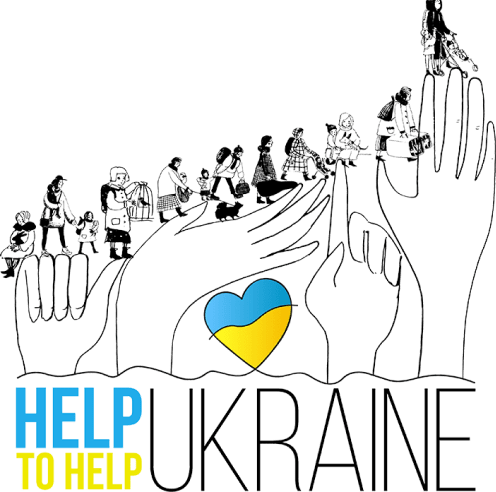National Organization of Romanian Scouts
Reborn in 1990, the National Organization "Romanian Scouts" is the largest non-governmental youth movement in Romania. Since 1993, the National Organization "Scouts of Romania" is the only scouting movement in Romania recognized in the World Organization of the Scout Movement, which currently counts more than 50,000,000 active members in 216 countries and territories. In Romania, more than 6,000 members are active in 79 groups. The Romanian Scouts opened an educational centre in Bucharest in October, where they organise activities for mixed groups of Romanian and Ukrainian children, providing access to lifelong learning for children and young people and integrating the whole family into the community through physical, creative, cognitive and emotional development programmes, themed activities for children or events for the whole family.
International Foundation for Child and Family (FICF)
The International Foundation for Child and Family (FICF) was created in 1993 on the initiative of the French Médecins du Monde Association and a group of child protection specialists and is a non-governmental, non-profit, non-political, non-religious organisation. Through its programmes, FICF contributes to the education, health and protection of children, families and communities by providing effective prevention and intervention services and training for professionals. FICF works with Ukrainian refugees on two levels: a mobile team that provides assistance and counselling in transit centres in Bucharest, involving children and mothers in various group activities and, on the other hand, organizes various workshops (art therapy, music therapy, yoga) at the Foundation's headquarters or outdoor outings for children and adolescents.
Sera Romania Foundation
SERA Romania Foundation is a non-governmental, non-profit, private organization, established in March 1996, which has accumulated a vast experience in the field of child protection and promotion of children's rights. SERA ROMÂNIA Foundation specialists have intervened in all the counties of the country, contributing essentially to the closure of old-type institutions, which housed hundreds of children in miserable conditions, and to the development of alternative social services, where the little ones were given for the first time the chance to live a decent life.
The SERA Romania Foundation has succeeded in changing the lives of 6,470 children living in 71 old-style institutions, which it has dismantled. These children are now living in better conditions, being cared for and receiving dedicated assistance.
At the same time, SERA Romania has developed rehabilitation services for children and adults with disabilities, supported vulnerable families where the risk of abandoning their children was high, provided humanitarian aid for thousands of sick children and families in flood-hit localities. The aim of SERA Romania is to create, organize and develop activities for children in need: orphans, abandoned children, neglected children and other children in need, but also for vulnerable adults or families.
Estuar Foundation
Estuar Foundation was founded in 1993 with the mission to provide social and alternative options to adults with mental health problems for their inclusion in the community. With a team of dedicated specialists and working in public-private partnership with local public institutions of social assistance, education, employment and at European level, ESTUAR integrates mental health into the policies, practices and programs of Romanian society. Since 2013 they have been recognized by the Romanian state as having public utility status. ESTUAR is the first organisation in Romania to offer sheltered housing to adults with mental health problems, a community-based alternative to psychiatric hospital admission. Estuar Foundation provides psychological counselling and social integration services in refugee centres in Bucharest through programmes that help them overcome the trauma of war, non-formal education, vocational and educational counselling.
ALIAT for Mental Health
ALIAT is a non-governmental and non-profit association working for the prevention and treatment of alcohol and drug abuse and addiction. Founded in 1993, ALIAT has been developing prevention and treatment programs for addicts and since 2019 has been running projects dedicated to the mental health of Romanians through ALIAT for Mental Health, offering its accumulated expertise in this field to families, schools, communities and institutions and helping tens of thousands of people affected by alcohol or drug addiction. They are present in several hospitals in Romania (Alcohelp program), they have both a mobile app (Alcohelp App) and a phone line where they can be contacted (Alcoline 021.9335), as well as ALIAT clinics in Bucharest and Suceava. ALIAT provides psychological support to Ukrainian teenage and adult refugees through information campaigns and mental health workshops to prevent substance abuse that can occur in traumatic situations. Aliat also offers refugees the possibility of psychiatric treatment and therapy, based on a partnership with specialized clinics in Bucharest.
Q-Arts Association
Q-Arts Association has established in 2021 the Abandonment Museum, a digital and participatory museum-forum project that aims to map the culture of abandonment and to give a historical narrative of the phenomenon of child abandonment in Romania. The Museum of Abandonment is the first digital museum institution in Romania, containing immersive and virtual reality exhibitions, but above all it is a platform that has opened the much needed dialogue about the immense trauma of abandonment in Romania.
As part of CARE's humanitarian intervention with SERA Romania Foundation and FONPC in support of Ukrainian refugees, the Q-Arts Association ran a journalistic and educational project entitled Baggage of Abandonment. The project archived dozens of stories about one of the most difficult forms of abandonment, the one refugees experience when they are forced to abandon their country, their home, their family, their life as they knew it in order to flee from war. Baggage of Abandonment is a social mediation project aimed at raising awareness of war trauma to facilitate integration, tolerance and acceptance.







